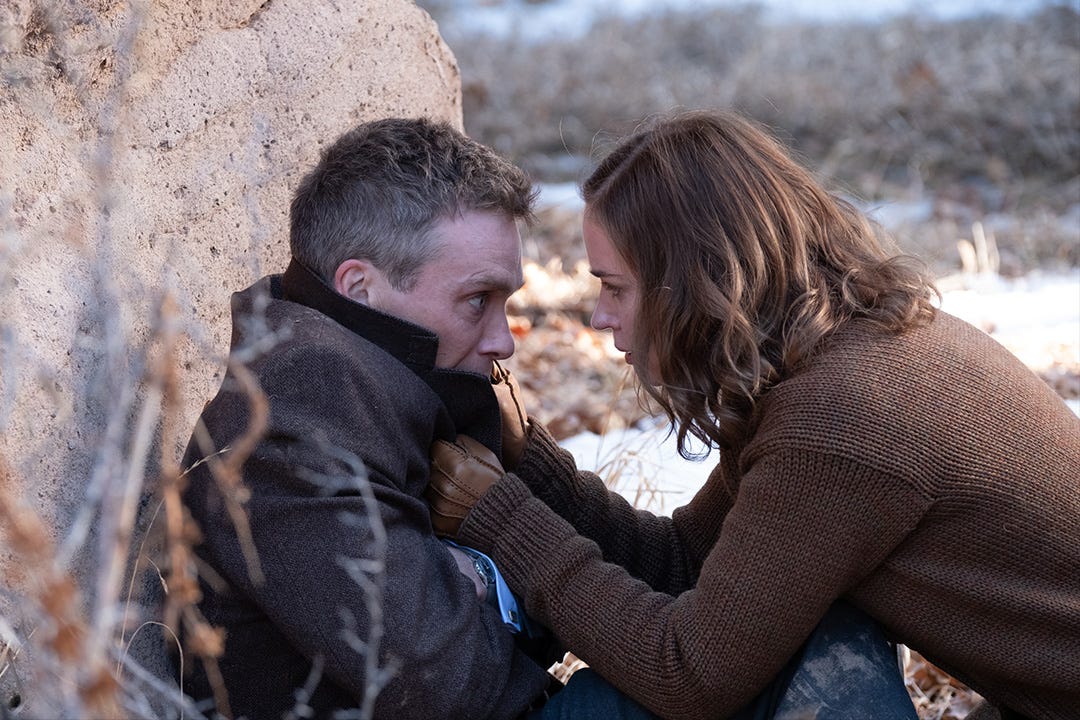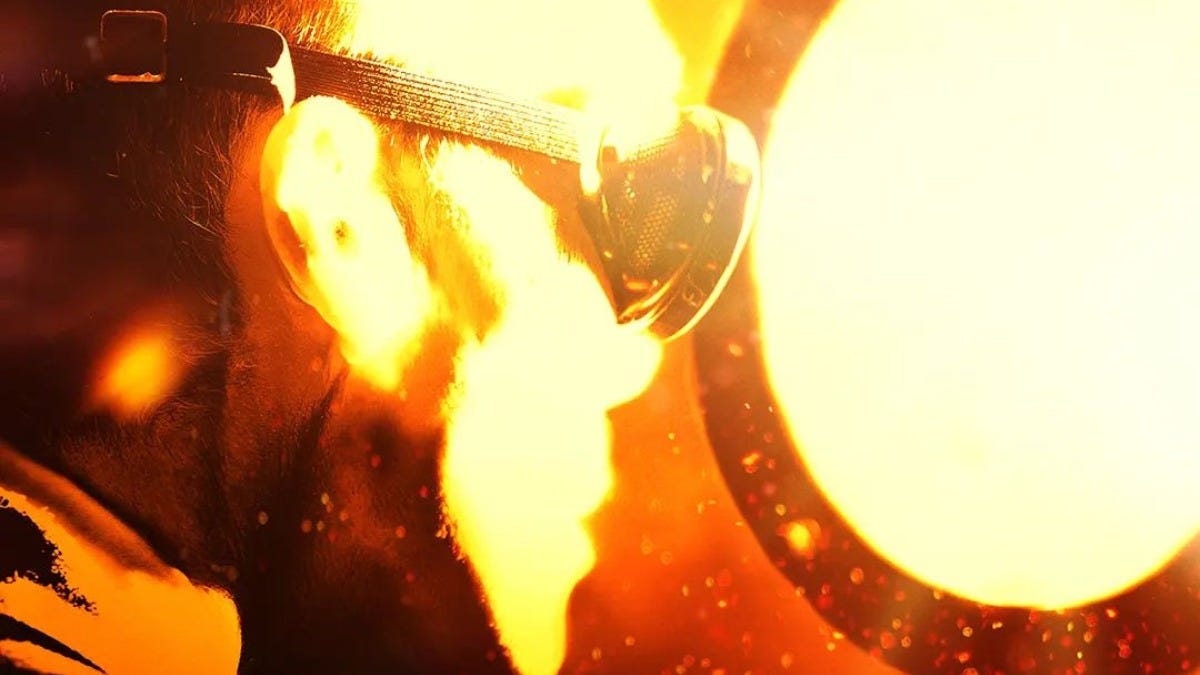Oppenheimer: The Sin and Sympathy
After a re-watch, Christopher Nolan’s “Oppenheimer” feels even more personal, more depressing, and more thought-provoking. Now even though I am very enthusiastic when it comes to History, I don’t consider myself an expert on Robert J Oppenheimer’s life and hence am here to simply talk about Cillian Murphy’s exceptional portrayal of the polarizing character. The movie is built upon tons of different ideas, different themes, and different questions, but the central unifying theme that blends the whole film together is a simple trait of one Robert J Oppenheimer, “taking an action and realizing its downsides later”.
The above trait of Oppenheimer is evident in all three acts, and every time, the actions have bigger and worse consequences. In the first act, Oppenheimer tries to poison his professor, something he is hesitant to do, but proceeds with it anyways. Once he realizes what he’s done, he’s able to reverse his actions and stop Niels Bohr from eating the poisoned apple. I believe Nolan wants us to understand that from there on, Oppenheimer develops a tendency to first perform the actions and think about the consequences later. In this particular instance, Oppenheimer is able to not suffer consequences for his actions, and even better, is able to actively undo his actions. Something we will see later becomes a big part of his life story and a major idea that for the most part defined his life.
In the second act, the relationship we will focus on here is the one between Oppenheimer and Jean. And this is where Nolan most clearly expresses the idea we are discussing here today, “actions have consequences, and can’t always be undone”. Oppenheimer, now married to Kitty, still goes to see Jean, actively engages in sexual activities with Jean while married to Kitty, and decides to break it to Jean that “he won’t answer now”. This leaves Jean shattered, and Oppenheimer, leaves, trying to again undo his actions, that is cheating on Kitty with Jean, by simply thinking Jean will move on. Later in the movie, Oppenheimer receives the news that Jean has committed suicide, leaving him traumatized. This is where the most impactful dialogue of the movie is spoken. When Kitty finds Oppenheimer alone mourning the loss of Jean and realizes what happened, she, in her state of fury tells Oppenheimer “You pull yourself together! You don’t get to commit a sin and then have us all feel sorry for you!”. This particular dialogue defines Oppenheimer, his life, and frankly the whole movie to me as well. On the first try, Oppenheimer was able to undo his actions, his sin, but now, he can’t. He can’t bring back Jean, and he can’t undo cheating on Kitty, but even then, Kitty forgives him, which is the greatest form of pity she could’ve performed with regard to Oppenheimer’s actions, and due to this, he still doesn’t suffer all the consequences to his actions, yes, Jean’s gone, but Kitty remains, his family remains, and his most important project is still on the cards.

Afterward, we get to the most important event, or maybe the biggest sin of Oppenheimer’s life, the Trinity test. He puts everything into this project, there’s a literal probability that this test might destroy the entire world, and yet Oppenheimer is ready, to perform it. As he looks on, the test turns out to be a success, and a far distant voice in his head says “And now I have become death, the destroyer of worlds”. Oppenheimer, he’s come a long way, from undoing his actions so they don’t affect anyone, to his actions destroying his former lover and now to his actions destroying the lives of millions of people he doesn’t even know. The boy has risen to the top of the world, and yet, stooped to the lowest at the same time, the boy, who with so much philosophical knowledge, yet, making a weapon that will be used as one of the, if not the most destructive and cruelest weapon the world has seen. As the bomb’s being taken away by the military, Oppenheimer starts feeling an odd tingling sensation, a familiar sensation, the same dread he felt as a young man poisoning his professor’s apple. But this time, he can’t just throw the apple away, for he’s not in the position to do so. When he hears the news of the bombing of Hiroshima and Nagasaki and has to speak on his invention, the dread comes back with full force, the dreaded sense of responsibility, a responsibility not his now, but once was. Oppenheimer realizes his terrible actions which have led to this, and possibly, the end of the world. The deed has been done, and the action, performed. He can’t reverse it, he can’t reverse anything now. So what does he do? At the start, nothing. He meets Truman and realizes this wasn’t a one-off, that his invention will be used, to build even a bigger bomb, for even more destruction. He knows he has blood on his hands, but again, at this point, he wants to undo it, which he can’t.
What now? He still tries to lessen his sin, he uses his sin to perform a good deed, and he embraces his reputation as the father of the “atomic bomb” to try and make sure no more atomic bombs are made, which leads to him suffering humiliation at the hands of the people he made the weapon for. And yet, we finally feel pity for the man. The man who made this terrible weapon, but the man who had the guts to accept his actions in the end and work towards opposing them afterward, the man who realized he indeed started a terrible chain reaction, which might in the end, destroy the world he was trying to save by performing the sin. It makes you realize that Oppenheimer, might not have been trying to commit a sin in the first place at all, maybe, in his head, he was trying to perform a good deed, which by the end, became terrible, like everything in this world does. We don’t feel sympathy for the man for the sin he performed, but rather because the sin he performed was actually a noble deed in his head. Just like Jean, who he tried to leave since he thought it would be better for all parties involved, but he didn’t realize that Jean couldn’t move on, just as the government couldn’t from the Uranium bomb he developed.






